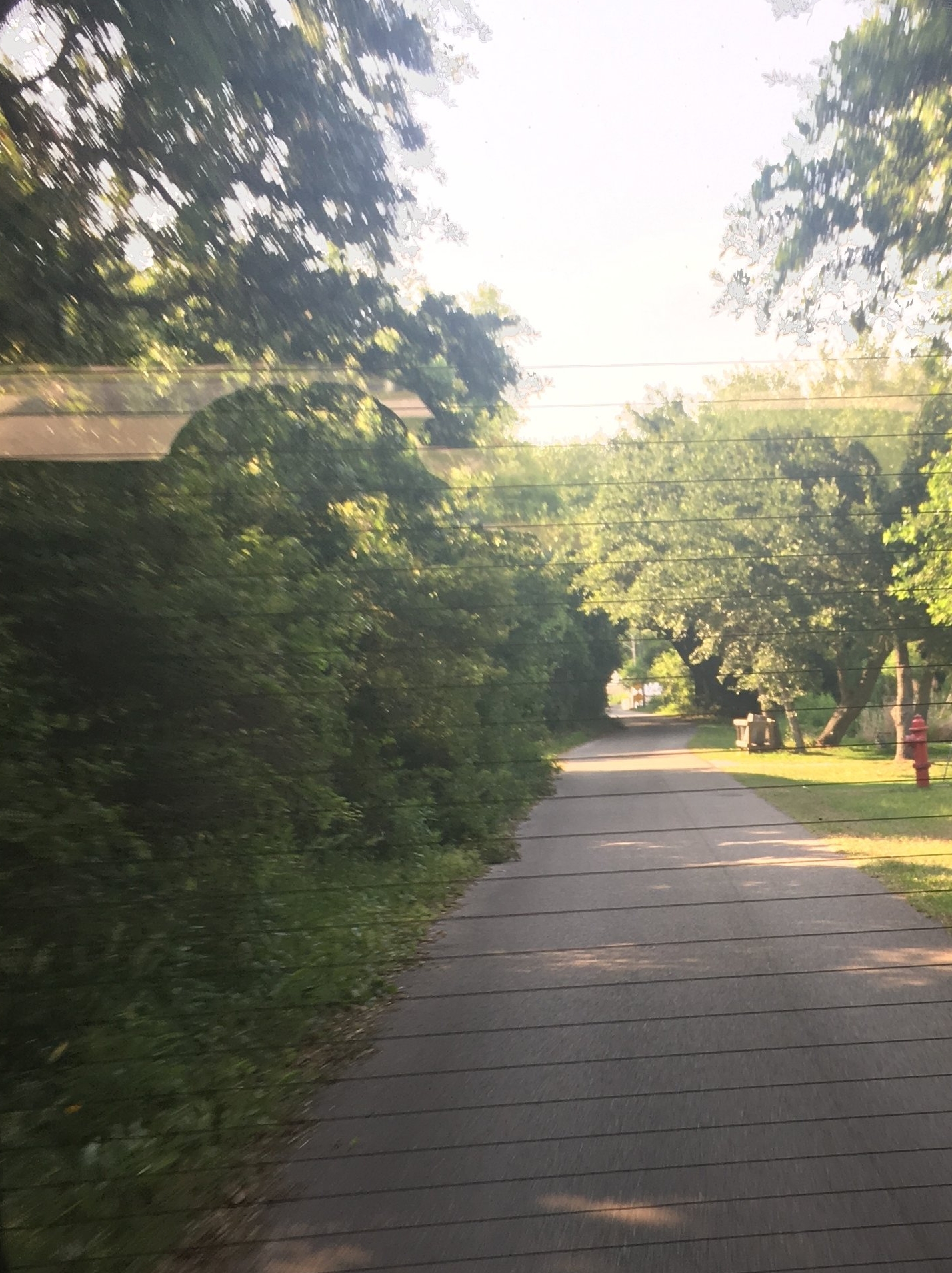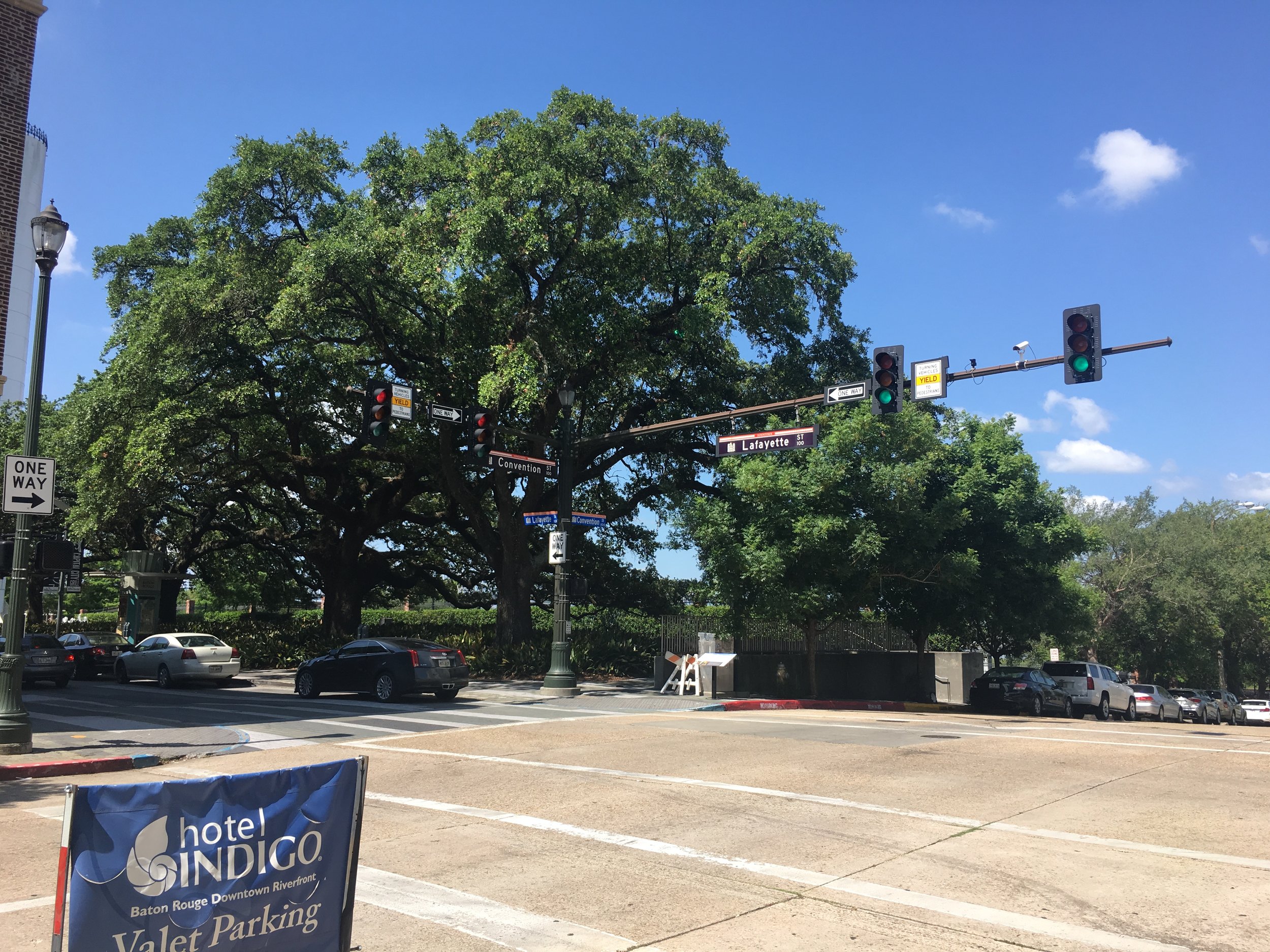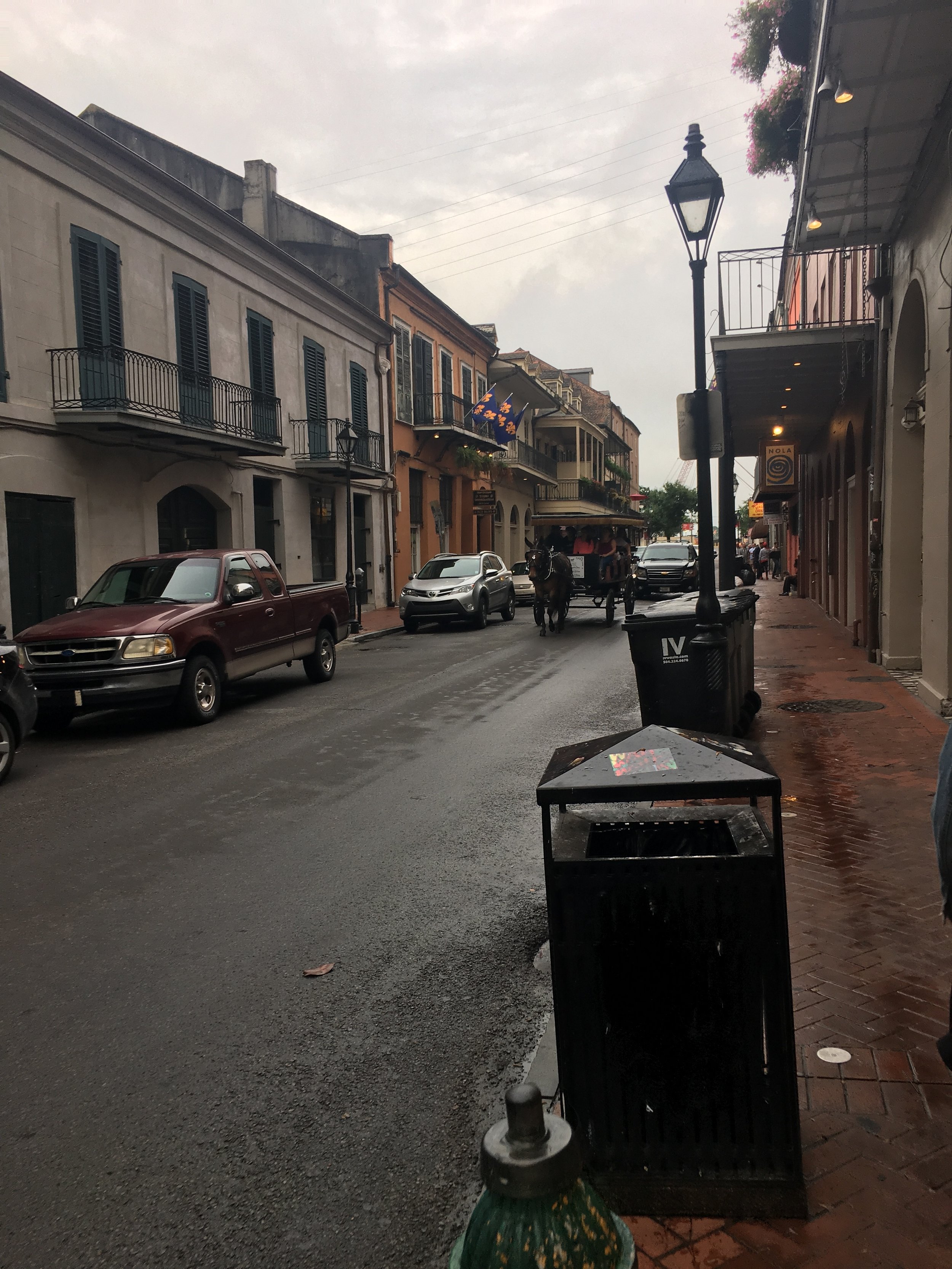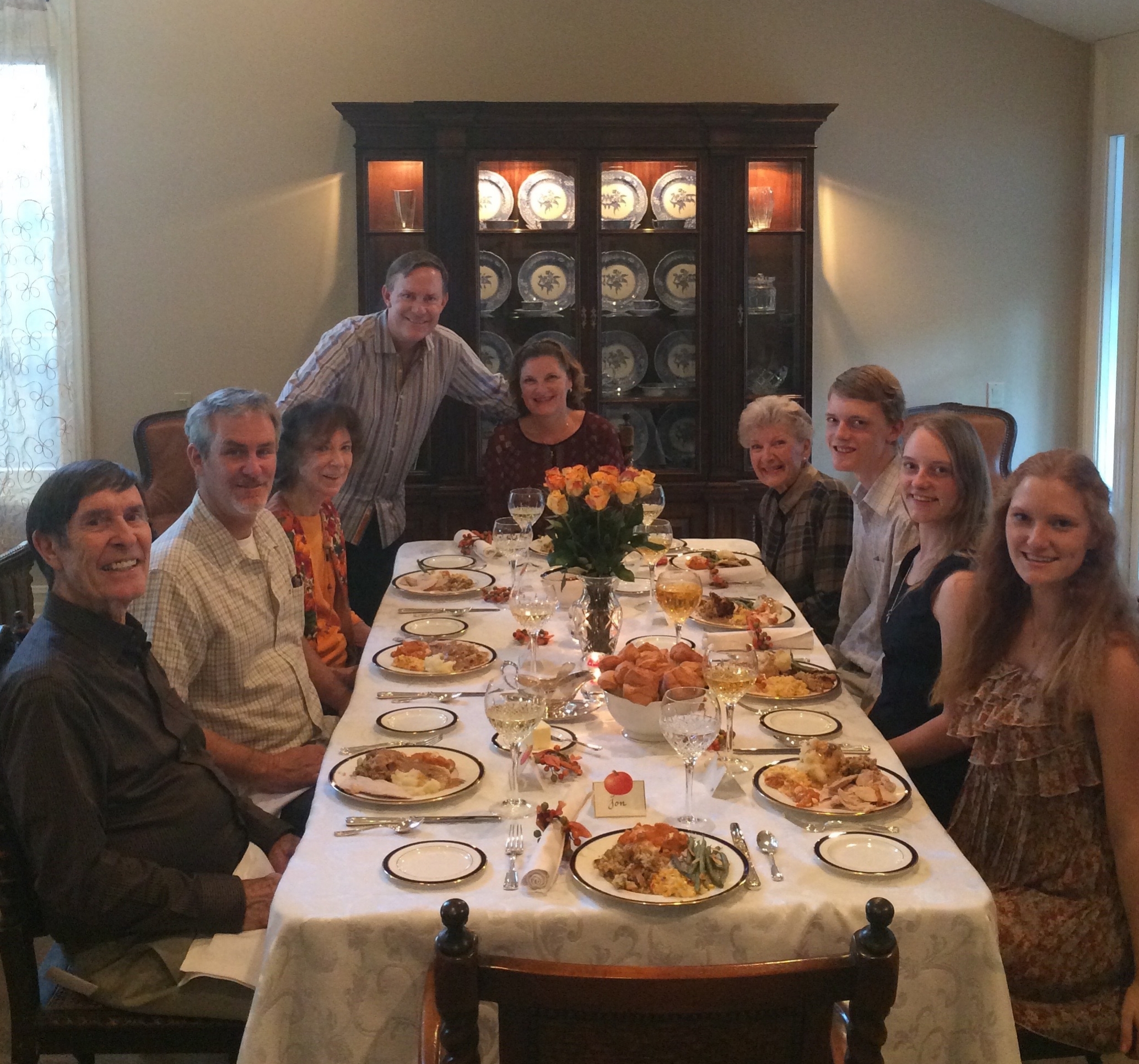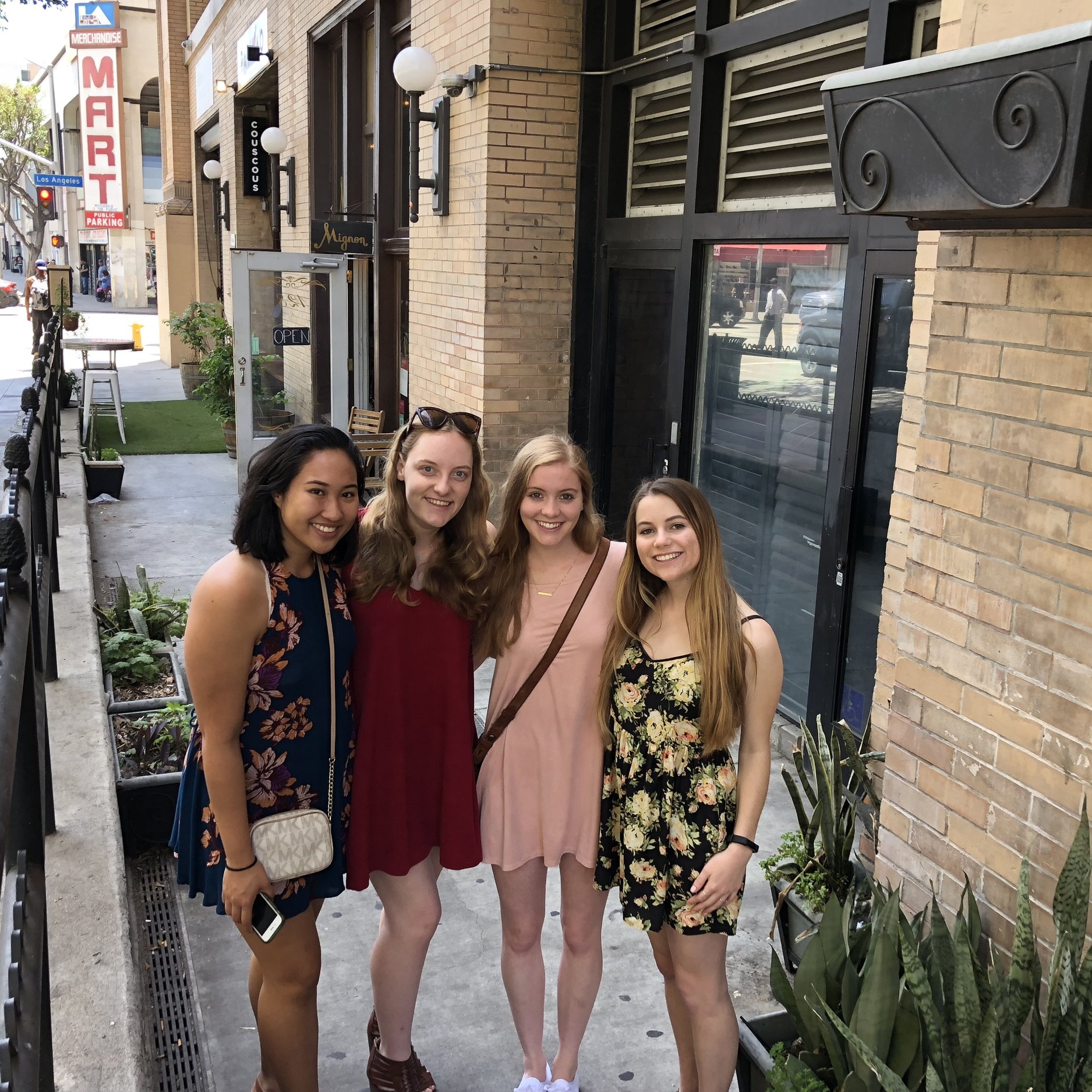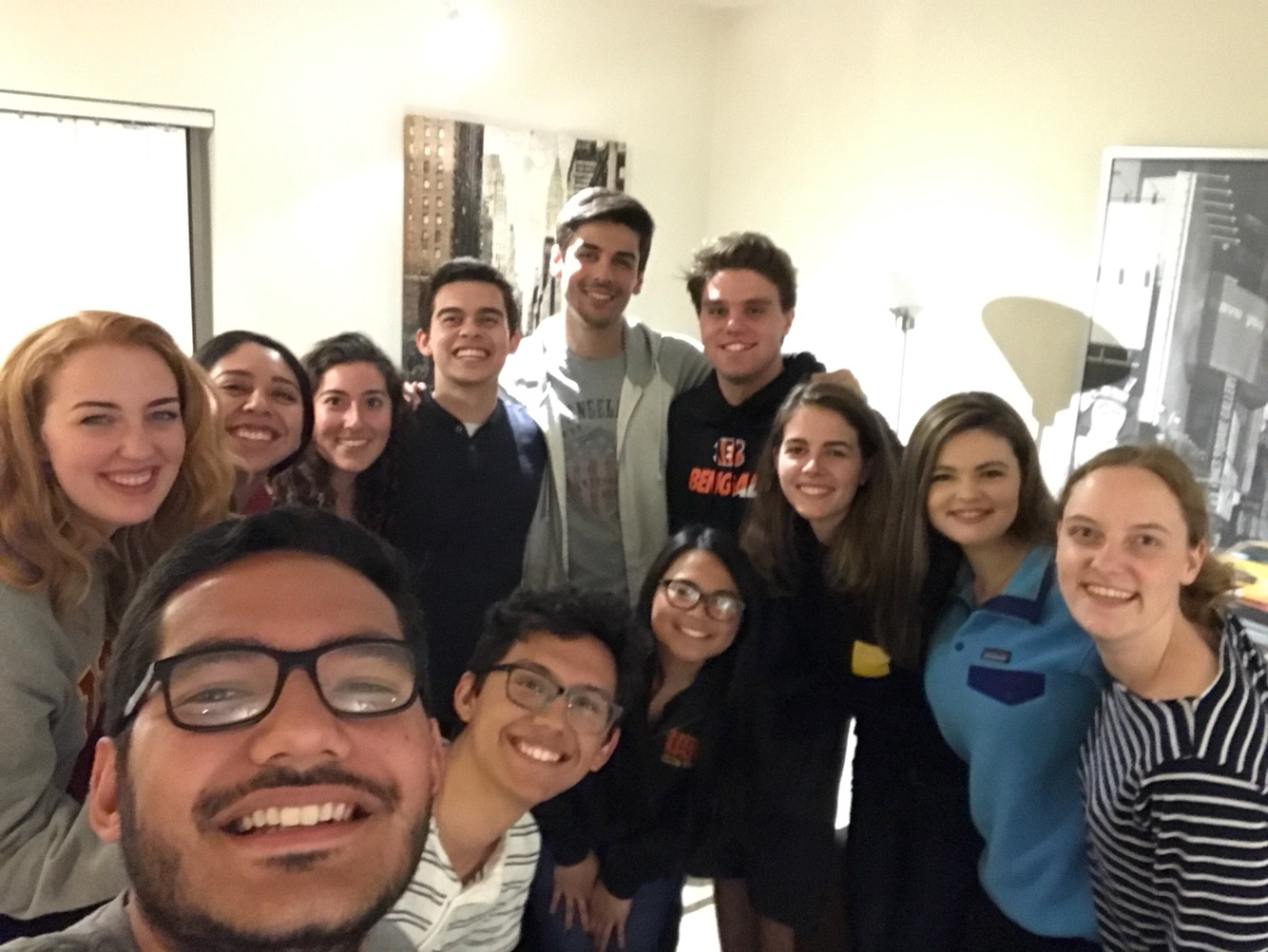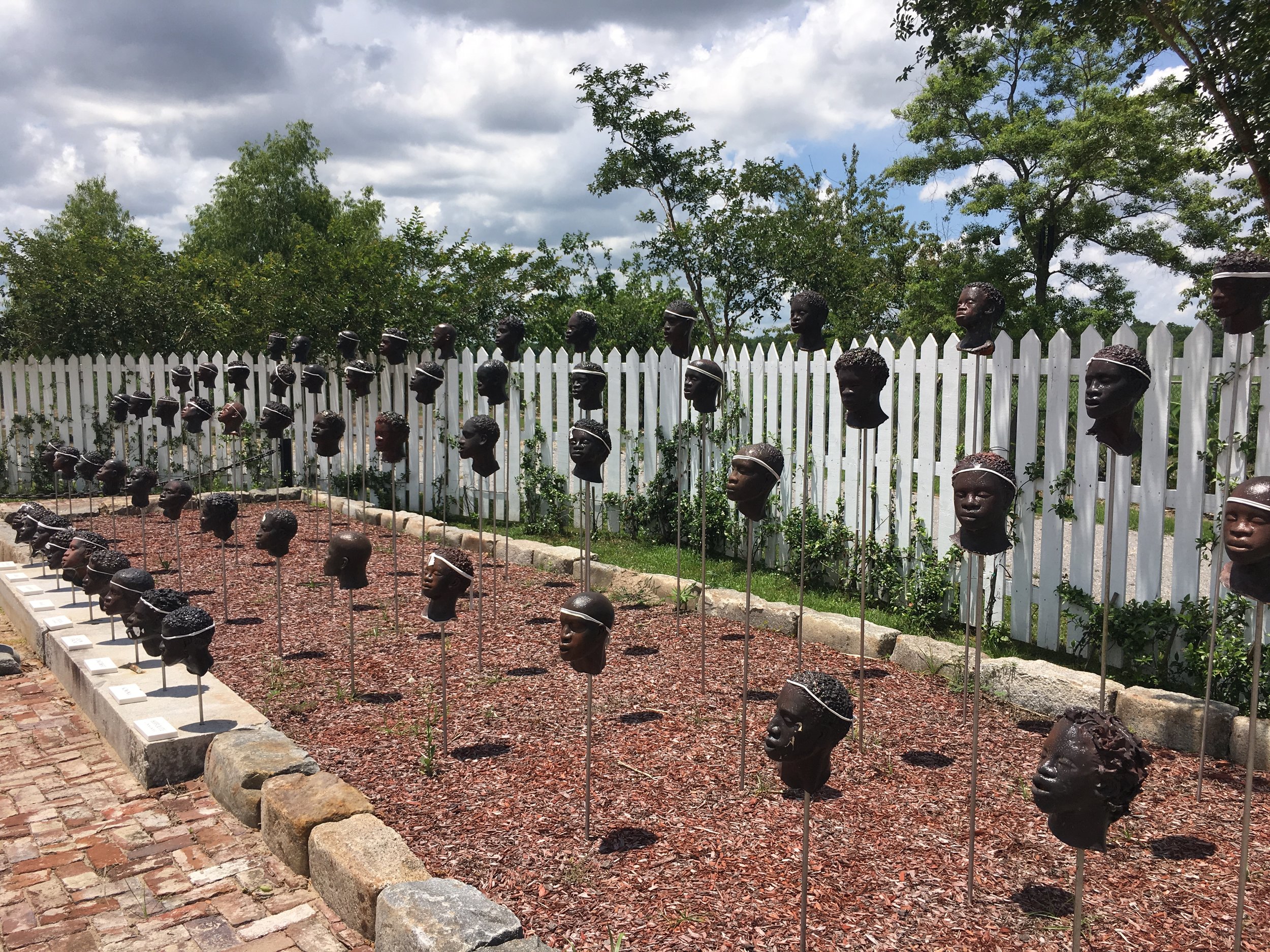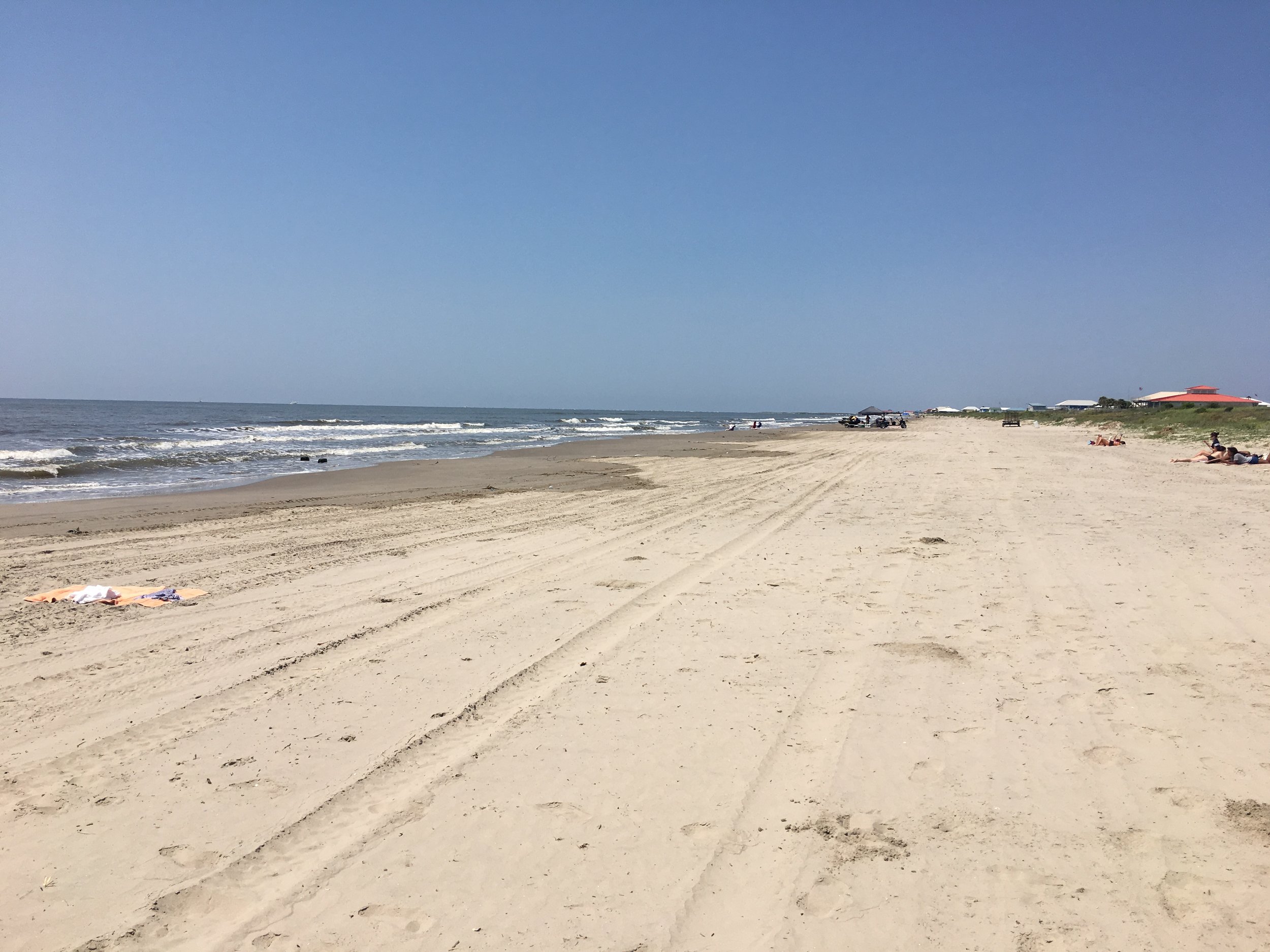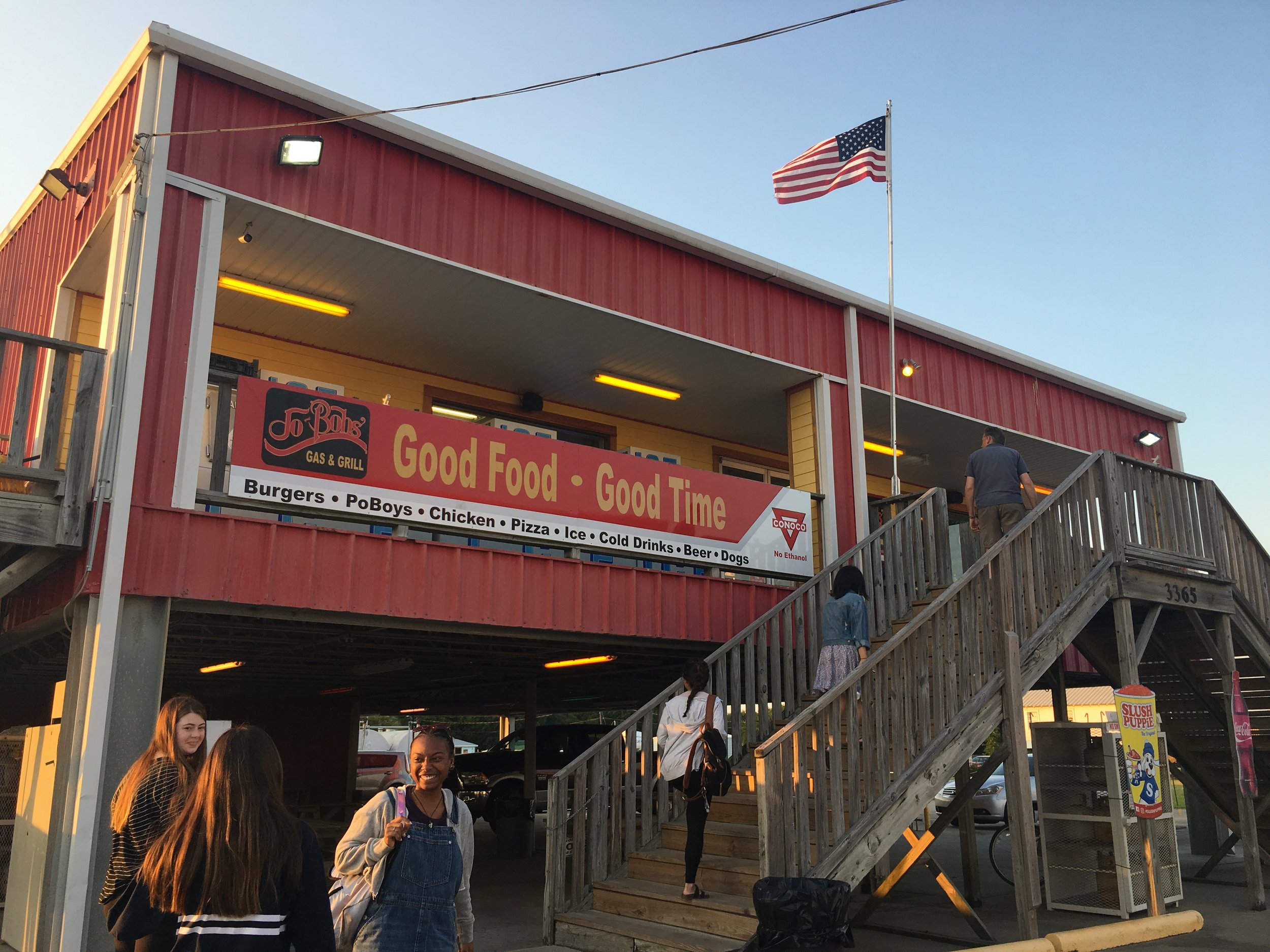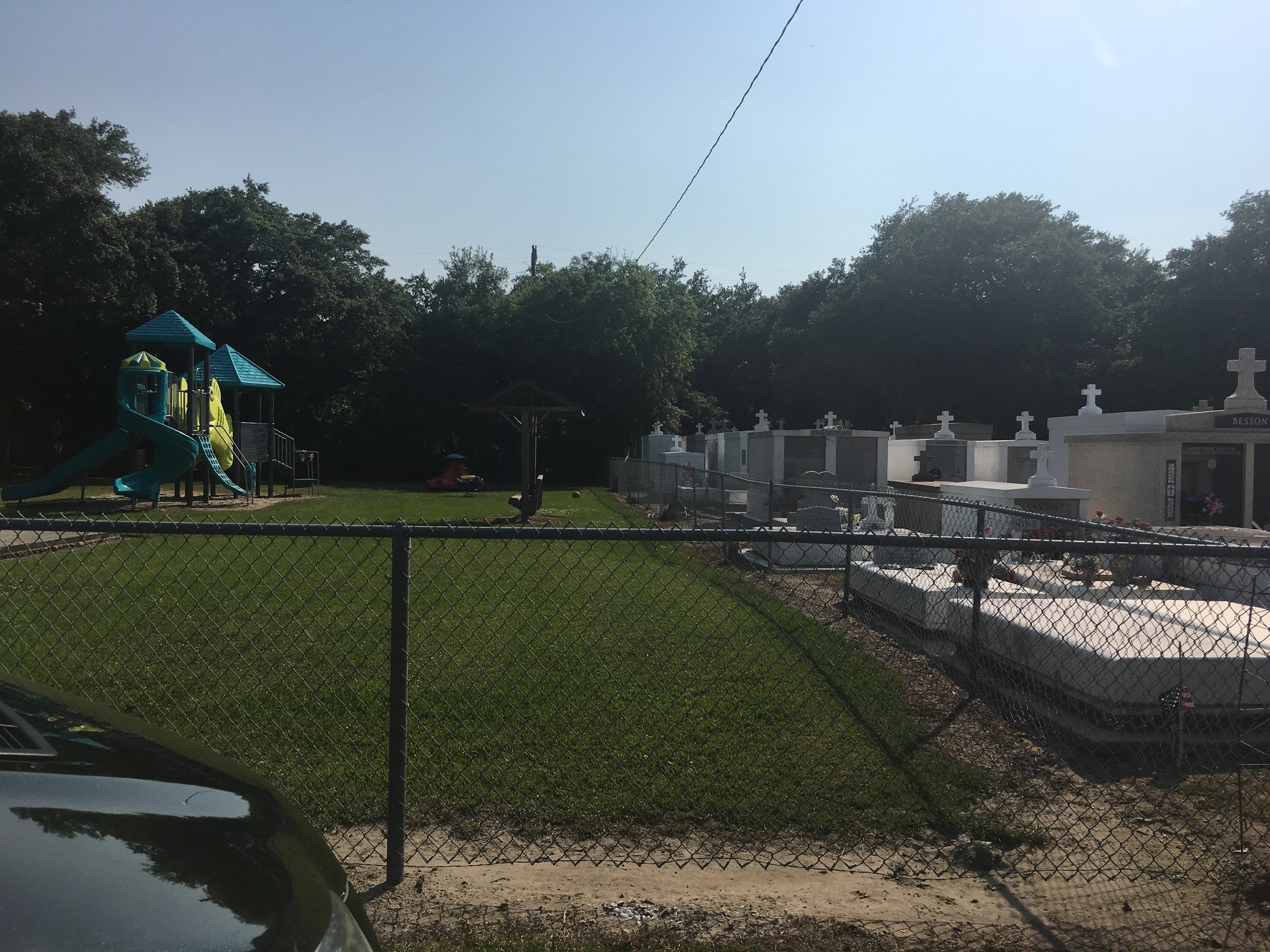Roads can say much about the priorities of a place. Louisiana's famously populist governor, Huey Long, built highways across the state so that he could drive from the capital to see his "hick" constituents more frequently. The roads in Baton Rouge tended to be wide and well maintained. The streets of New Orleans had notoriously large potholes. One bridge that spans Lake Pontchartrain was secure but left us bouncing in our van. And in Grand Isle, the tiny two way street that runs the course of the island is simply paved (and slightly bumpy).
We've driven a lot on our weeks in Louisiana, but I jumped at the chance to take the van on just one more journey. On our second-to-last day of the trip, we visited the Lower 9th Ward of New Orleans. It’s a sobering sight; empty plots of land where houses stood pre-Katrina haunt the landscape. We slowly drove past rows of grassy rectangles, overgrown with weeds, when it began to pour. How fitting that the sky shed tears at the devastation of this former community. How cruel that the very rain that tore this place to shreds dares to drop here again.
“Tomorrow, and tomorrow, and tomorrow,
Creeps in this petty pace from day to day,
To the last syllable of recorded time;
And all our yesterdays have lighted fools
The way to dusty death. Out, out, brief candle!
Life’s but a walking shadow, a poor player,
That struts and frets his hour upon the stage,
And then is heard no more. It is a tale
Told by an idiot, full of sound and fury,
Signifying nothing.”
Like the brief candle of Macbeth’s imagination, the community that used to flourish here is gone forever. Some residents left for safer places, yet many stayed near New Orleans, struggling to piece together their former lives. After thirteen years of recovery, "tomorrow" looks promising for some Lower 9th natives. Charities like Brad Pitt’s Make It Right Foundation still build houses for families in need in the area. Yet the road ahead for this district will not be an easy one to take.
Across town, in the French Quarter, people strut down a very different road. New Orleans is a city that’s famously good at making noise like the idiot's “sound and fury”. Musicians blare on their trumpets and saxophones, bartenders pour heavy-handed drinks for already-wobbling tourists, mule-drawn carriages roll over puddle-filled-potholes, and shiny new cars pull up to hotel valets next to homeless men with cardboard signs. In sounds, sights, and smells, no city takes the cake quite like New Orleans. The French Quarter is loud, overwhelming, chaotic, seductive, licentious, mysterious, lively, and gorgeous. Its roads are littered with empty beer cans, old Mardi Gras beads, spilled drinks, used Café du Monde napkins, forgotten grocery lists...
In the words of one of my classmates, New Orleans is a city that hasn’t decided what it wants to be yet. The suffering of the residents of the Lower 9th, of the French Quarter’s homeless, of countless residents in poverty, leaves its mark on the city. Yet New Orleans still overflows with luxury and excess, as tourists and wealthy locals spend lavish amounts on crazy cocktails and indulgent meals. New Orleans is neither entirely rich nor poor, lost nor found, joyful nor melancholy. It's a hurricane of hypocrisy, and a downpour of duplicity.
“The storm which has been brewing since noon now breaks over our heads. Thunder rattles the panes. We walk out onto the gallery to watch it. A rushing Gulf wind slashes the banana leaves into ribbons and blows dead camellia blooms across the yard. Veils of rain, parted for a second by the house, rush back together again.”
The gloomy, gray rainclouds which frequently threaten lazy summer afternoons in the city take very little time to burst forth with precipitation. One minute, that cloud looks a little darker than the others, the next, passersby are soaked by the storm. The hot, sticky humidity followed by a chaser of warm, heavy rain is the perfect cocktail for a city defined by its convoluted confusion.
A flash flood fills the avenue in front of our New Orleans hotel. The rain comes down hard and fast, with the water rising until it soaks even the sidewalk. The tumultuous nature of Louisiana's weather makes both physical and metaphorical roads tricky to navigate. Only the drivers well-versed in the way the water pools here will make it out quickly. Likewise, only those who are deeply familiar with the scars Katrina and other catastrophes of south Louisiana have left behind, will be able to help these places heal. Although the road to complete recovery from Katrina still reaches beyond the horizon, the heart of the hurricane has passed. The rain that started the flash floods have ceased, and the streets begin to move again.
Bookpacking has served as a reminder to me that the adventure matters more than the destination. These journeys are where challenges, growth, and change can happen-- and these are what shape us into our fullest selves. Only by traversing the road ahead do we discover what means the most, what strength we have that pushes us through storms, and who stands by us throughout the ride.


